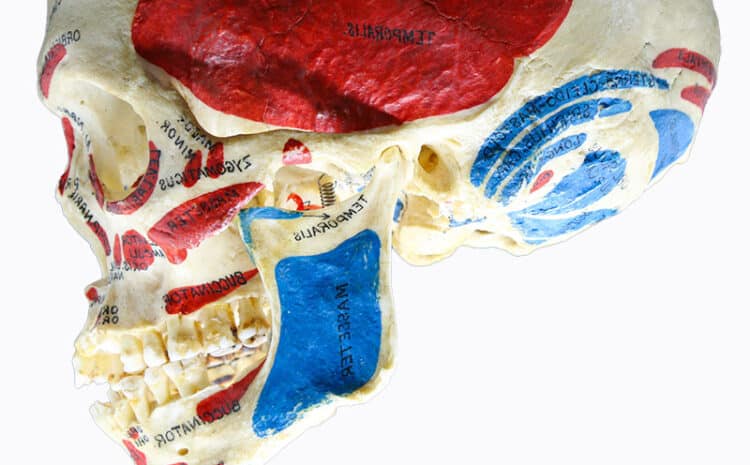
In conjunction with your home care regimen, you may also need professional treatment to address your temporomandibular joint disorder (TMJ disorder). After your diagnosis, your dentist or TMJ specialist will provide you with a customized TMJ treatment plan to address your specific symptoms and health history. Here are five therapies your dentist may use, in descending order or recommendation.
-
Splint therapy. A dental splint is an oral device that fits over your teeth and protects your teeth, jaw muscles, and TMJs. Your dentist can fit you for a custom splint by taking an impression of your teeth or by digital scan. You may be asked to wear the splint 24/7 at the beginning of your treatment, or just when you sleep. The success of splint therapy is dependent upon how well you comply with your dentist’s instructions. To make sure your dental splint fits correctly and provides the most relief, your dental team may need to adjust it several times as your jaw gets used to it.
-
Medications. Your dentist may prescribe you a muscle relaxer to decrease spasticity in the jaw muscles and allow your joints to relax. You may also be give a prescription for an anti-inflammatory. Although not commonly used to treat TMJ disorder, your dentist may also use corticosteroid injections. The medications your dentist prescribes will vary based on your symptoms and the type of TMJ disorder you have. It’s important to discuss your current medications and health history with your dentist to avoid any complications and make your TMJ treatment effective.
-
Acupuncture. Part of traditional Chinese medicine, acupuncture involves a practioner inserting sterile thin, flexible needles into specific spots of the body. Your provider will observe where you hold tension in your body and ask a series of questions before deciding which areas of your body to target. There is no concrete scientific evidence that shows acupuncture is completely effective in eliminating pain, but some patients do have success with this TMJ treatment.
-
Dry needling. Dry needling is similar to acupuncture, but it’s more direct. This practice involves placing sterile stainless steel needles directly into the affected muscles. If the muscles twitch or jerk, this means it’s working and the needle has contracted a trigger point in the muscle. This should help the muscle relax and improve circulation and flexibility. It’s common for patients to be sore for a few hours to days after dry needling. Like acupuncture, clinical studies documenting the efficacy of dry needling to improve TMJ function are limited.
-
Bite adjustment. Adjusting your bite is considered a somewhat invasive TMJ therapy because it is irreversible. It involves reshaping your teeth to allow them to fir together with enhanced stability throughout your mouth. You may need this especially if you have mobile teeth or heavy contact on your front teeth. Your dentist or TMJ specialist are the only healthcare providers who should prescribe and provide you with this TMJ treatment.
-
Jaw surgery. Jaw surgery should be a last resort to treat TMJ disorder. This therapy is extreme, invasive, irreversible, and should be approached with caution. There is little evidence for the success of jaw surgery to improve symptoms. If your dentist immediately recommends jaw surgery, you may consider obtaining a second opinion.
Important note: start slow. Due to the lack of scientific proof for treatments of TMJ disorder, it’s generally advised that therapy is conservative, non-invasive, and reversible. In other words, “less is best” is the recommended approach to treating TMJ disorder. When you begin with the most conservative method and work your way up, you and your dentist can decide when to discontinue therapies that make symptoms worse or don’t lead to improvement.
If you need help treating your TMJ disorder, call the trusted professional at Advanced Dental Implant and TMJ Center . You may also contact them through their website to ask questions and schedule a consultation.



